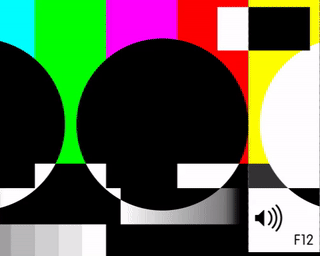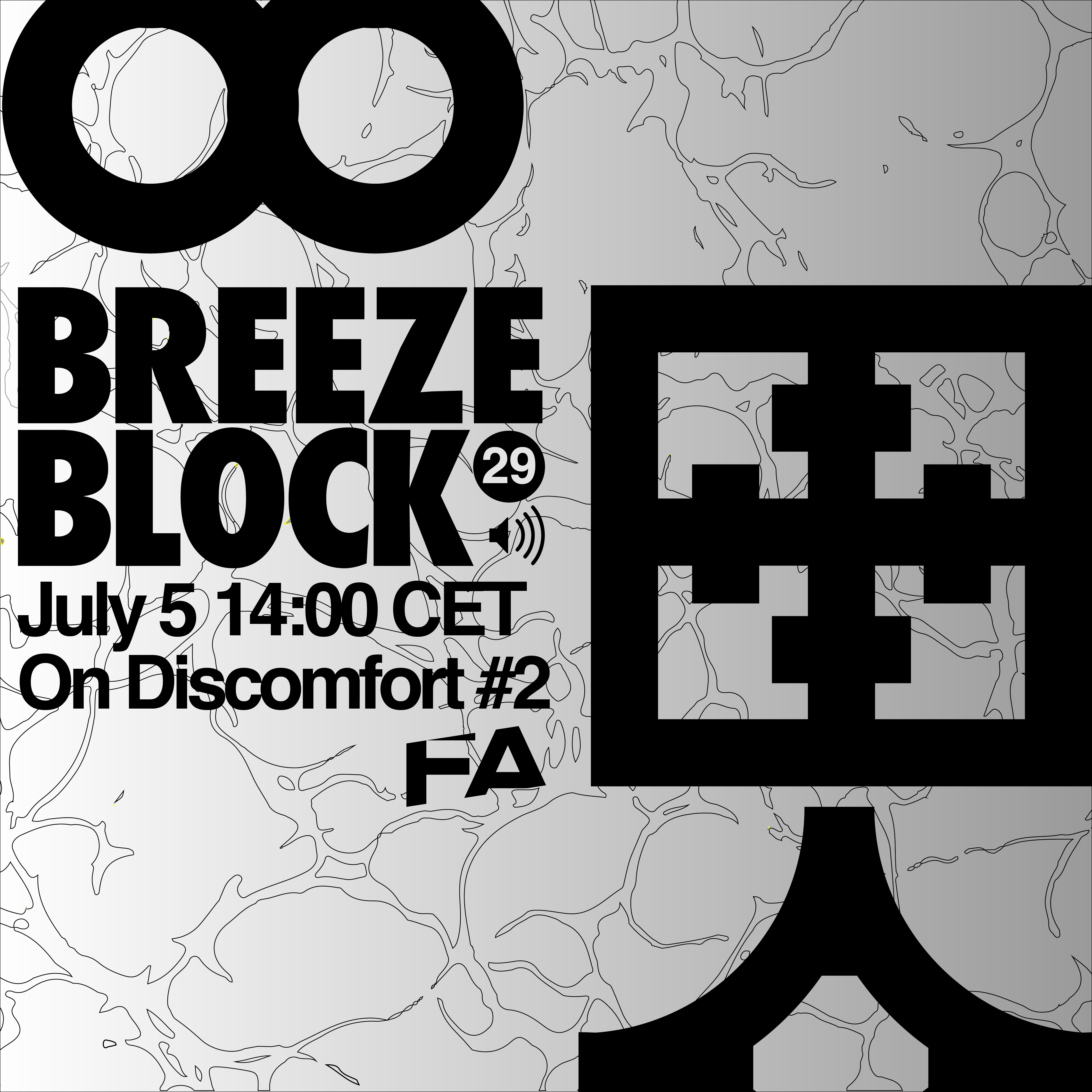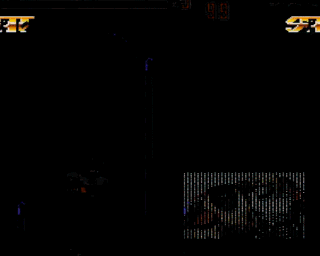Episode Transcript
Speaker 0 00:00:06 Hello, and welcome to breeze blogs where editors discuss works in progress, urgent matters, and current happenings in architecture and spatial politics. My name is Maria <inaudible> today. I am joined by Ariella leaks, Heidi, and thank you for joining me today.
Speaker 1 00:00:21 Hi Maria. Great to be here. Thanks for having me, ideally,
Speaker 0 00:00:24 As a founder of slash projects, um, multi-disciplinary design firm in New York, she was also part of some digital activism projects for establishing equality in architecture. So I thought it could be an interesting topic for today's breeze book and the reason why I contacted her to talk to me before starting to talk about this project. And before you tell us about what you did, I think it would be nice to know your perspective about the visibility of women in architecture, because I think that was an important trigger for you to start this project.
Speaker 1 00:00:52 Yeah, absolutely. Um, so I mean, really, I, you know, I've always kind of had that awareness. My mom is an architect, so I think I grew up with that, um, being part of the strong narrative of architecture and women's place in it. And when I entered the graduate school of design at Harvard, where I did my master's of architecture, it became so much more apparent, you know, especially as I was undergoing my own training in architecture and, um, being a part of kind of the gender inequality that exists, I think both in the workplace, but also in the institutional way that, um, you know, the pedagogy is disseminated and I really was, um, confronted with the, um, the various kind of, um, nuanced ways in which women are more invisible within the profession. And that's really, I think what brought my activism to the forefront in this kind of domain. Um, I would say prior to architecture school, I also, I was already doing a lot of activism related to, you know, other political, um, issues and inequality in my undergrad. And it just kind of felt like the natural progression, um, where, you know, I just, when I see something that's unjust, I feel like I have to speak about it.
Speaker 0 00:02:22 Now let's jump into the projects you have done. Um, so probably the first will be the petition you started with Carolyn James.
Speaker 1 00:02:29 That's probably the most well-known one because it really got a lot of attention for, I think, both tapping into a moment in time when this was, um, you know, part of the rising kind of subconscious and the petition was essentially a response to Denise Scott Brown, um, making a statement about wanting recognition for her part in the role of her partner, Robert Venturi, receiving the Pritzker prize in 1991. And during it was my thesis year at the GSD, uh, and I was kind of reading architecture or news on architect or Dezeen, it was kind of everywhere. And Denise had come out with a statement saying, you know, I want retroactive recognition, some kind of inclusion ceremony. And at the time I was, you know, a lot of these blogs tend to have a lot of comments and people are, could be really nasty in the comments. So I reading the comments of people, you know, saying, well, oh, I'm going to demand a Pritzker prize as well.
Speaker 1 00:03:37 And who is she to ask for recognition? And, you know, the, it started to really hit me. Why doesn't she have recognition? Um, she's brave to have said something about it. And as I started to kind of delve deeper into what is Denise Scott Brown story, um, she's such a, I think, uh, iconic figure. I mean, Jerry Scott Brown as a firm in the history of American architecture, at least they're so iconic. So the question really became, I'm not, you know, what is it? It really became about why she was being denied recognition and, um, and where, you know, in the history of sexism that lies. And so as I, I really looked more into the issue. I couldn't understand why the Pritzker prize was not given to both partners. Um, and essentially the petition started from, uh, almost a naive place, um, where I thought, well, this institution isn't aware, correct.
Speaker 1 00:04:46 Well, you know, at the time it was 2013, I thought that was, we were beyond overt sexism. I thought, well, you know, there are so many instances of, um, you know, these sexism as nuance or, um, unspoken, but overt sexism. I kind of felt like we had all agreed, you know, as a culture. Um, that was, that was not something we were all participating in and denying a public figure, equal recognition to their partner felt like it was part of that category for me. Um, and so what started as kind of a naive plead to the institution presenting that recognition and that being the Pritzker prize turned into a broader outcry, they in rejecting, you know, to correct that oversight of not having given both partners equal recognition, um, you know, they held firm on their stance that they had done the right thing in 1991.
Speaker 1 00:05:54 And I think that that really bolstered this public opinion that we do have a problem that we need to confront with gender parody. And even our institutions are unwilling and unwavering to recognize where their historical sexist past has left them. So I still think today it's a huge issue and that they need to rectify the past and by allowing one partner to have received recognition when both simply because Denise was considered a lesser partner, because she's the wife and the woman by the Pritzker prize, not correcting that kind of marker in time, they're essentially saying, well, we refuse to acknowledge our sexist past and therefore it still stands true now. Yeah, of course.
Speaker 0 00:06:48 Well, now let's jump to the other project you did is this Wikipedia editing marathon that you started in the storefront for art and architecture in New York
Speaker 1 00:06:57 That they're actually both quite related. And one really came out of the other because they both are related to, um, the transcribing of history and, and what it, what it means to tell the story. And also the idea that recognition is not only about, you know, bolstering one person's ego, it's actually more about, in my opinion, it's more about, um, allowing future generations to, you know, to realize their potential because in Denise being awarded the prize, therefore in so many, you know, millions of people's eyes, she gains, you know, that respective glory. And I think it would instill in a lot of women, especially, um, who could consider her a role model, um, you know, more confidence and more that there there's more precedence really for, you know, women, women having achieved the same as men. And in the process of the petition. One of the kind of funny, interesting things that came out of it was the Wikipedia page of the Pritzker prize, because as we were kind of trying to, um, to really make them realize how much of an impact as an organization, that decision has on literally millions of people one way was to edit the Wikipedia page.
Speaker 1 00:08:26 And, you know, there were, I think a number of kind of activists working on, um, both Denise Scott Brown's Wikipedia page and the Pritzker prize Wikipedia page and editing into place. The fact that there is a controversy, the fact that the organization has a sexist past. And I think, you know, that became, uh, a place where this contention was being, um, written and rewritten and, you know, it, it be written one way one day and then the next day it would be written another, uh, another way. And the way Wikipedia works is is that there are these kinds of like editors that I think they're the, the more, um, vetted editors. And there are, you know, more casual editors, anybody can become an editor. Um, and so once a page kind of takes on enough, um, has like, uh, enough data, I think, to, to justify, uh, some changes, the vetted editors will continue to enforce that on the page.
Speaker 1 00:09:34 So it becomes more true in a way. Um, and anyway, I think the main point of that whole exercise was to kind of in my mind, again, bring up this, um, this question of how we're writing knowledge and how knowledge is disseminated and who is disseminating that knowledge that becomes therefore what we consider truth. As I researched more about Wikipedia and, and, and the process of creating this written document, that's kind of ever changing. It also came to my attention that there are very few women contributors to Wikipedia. And of course, from knowing that it makes sense that, you know, the topics that are covered and the way by which they are covered is influenced by the people recording those stories and that history and what sources are deemed credible or not. And so it's so important to really be aware of, of like what the, um, what the unsaid bias is of the authors, even in such a platform as Wikipedia that is veiled with so much, um, so such a sense of objectivity.
Speaker 1 00:10:52 Um, and so that's where digital invisibles really came into fruition. Um, I had seen other projects, uh, by different art organizations who were organizing these Wikipedia editor thens to write into history women, artists who had been overlooked. And I thought, well, we could do the same for women architects. Um, and you can see even just by searching through Wikipedia and looking at, you know, men's pages versus women's pages, there are thousands more words written about men, thousands, more changes made on a daily basis, um, of men's pages. And that's, I think also related to who is doing the writing.
Speaker 0 00:11:44 So well, of course you believe in digital activism. I mean, you were telling us about the projects you have done using digital activism as a tool, but I think these days, especially now with everything that is happening with black lives matter, for example, there are a lot of different positions and discussions about the use of social media and online activism in general. So I would like to know, what do you think from your experience, how fruitful it is, where is the scope? How critical can we be about it? Like, for me, it's just that it's a, still a big question because I am very interested in it, but I also find all these positions against it every day. So I think it would be nice to know. What do you think about it?
Speaker 1 00:12:21 Yeah, I mean, I, I, I still think it's super critical, especially, you know, I don't know the, the percentage of minority voices writing into Wikipedia, but I imagine it's probably, you know, along the lines of, you know, women, there's just so many underrepresented voices taking a contributing rural, and, uh, definitely something that we can improve and I think will improve the kind of, um, the, the way that my minorities are represented, um, in the fields. And I personally do really strongly believe that that has such a direct correlation, which, um, inspiring future generations. So on the one hand, I think that activism needs to also exist in the streets and there needs to be, um, a tangible side, but doing, um, you know, taking actions online can also have a very strong impact. I think if it's done in a very strategic way where there's, it's not just kind of a, I want to say greenwashing or digital washing, I'm not sure what the term is, but you know, something that, that can have lasting impact.
Speaker 1 00:13:29 Um, and I mean, during this time, uh, you know, and, uh, curator, um, of a well-known design institution was posting on Instagram. You know, I'm looking for black architects in history and because of the Wikipedia editor Thun, we had worked on entering a number of black women, architects actually, who were some of the first registered black architects in America. And, you know, I had that information, so I was able to pass that to him. Um, and hopefully that will therefore impact, you know, future shows and, and create even more, um, record of their work and their legacy. But at the same time, it really has. It's also such academic work. Um, so it really needs to kind of exist at so many stages like in, uh, PhD programs and theorists and curators really need to be kind of putting in the, um, the academic work to, to really back up anything that can therefore be disseminated online. Okay.
Speaker 0 00:14:36 Last question, before we say goodbye, are there any projects that you're conducting or initiatives you find valuable that are related to digital activism in architecture right now?
Speaker 1 00:14:47 So my own firm, um, during this basically at the start of the pandemic, we started a series called design and crisis. Um, really just to explore the way a design has often been an output of times of crisis and to understand, you know, how the constraints have played into the design world over time and looking in history, and as the black lives movement has really exploded here, we shifted and looking at attention, uh, of, uh, design and race and really understanding, you know, what are the, um, what are the S the methods and mechanisms over time that have either been used to oppress or era that need to have a more critical view. And so, to me, it's really about, um, educating ourselves in the studio, also kind of dispelling certain myths that I think are, um, you know, um, myths that are, uh, things that we have kind of overlooked as being, um, tools of oppression and, and unlocking those and really taking a critical view of, uh, where we are and how we've gotten here and how we can as designers help to enable change.


